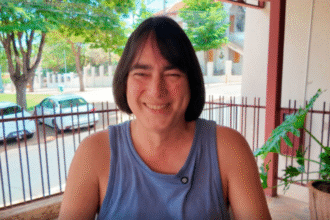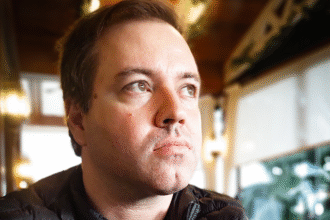Before becoming a successful leader and mentor of more than 1,500 ventures, the Portuguese Ana Cristina Rosa had her wings clipped many times. And it was precisely to make the process of building her own business less romantic that she dedicated herself to the book Empreender Sem Fronteiras, a title released by DVS Editora in Portugal and Brazil. In an intimate speech, the author invites anyone who wants to venture into the business world to identify the main fears that surround their dreams and offers answers and paths to follow. The book brings together strategies to help future entrepreneurs take action.
Living on a tightrope without knowing how much you will earn in the month, living with all the insecurities that attack the mind and dealing with those who do not undertake are some of the challenges faced in the daily lives of organizations. To overcome these obstacles, as the writer shows in the work, it is necessary to remain focused, overcome the imposter syndrome, assume the position of leader and understand the roller coaster of the business universe.
In this sincere report, Ana Cristina shows that working on automatic, without passion, distances people from their purpose and can also favor the appearance of diseases. Facing ups and downs in her career, while trying to convince herself that she was still on the right path, she began to experience frequent bouts of panic. In addition, he missed family support when commenting on his dreams. From then on, he started looking for answers to some questions.
Throughout the narrative, the author tests the reader and encourages him to think about how to apply the teachings in life and career. The instructor uses her own experience as a journalist who abandoned the profession, opted for entrepreneurship and overcame limiting beliefs to reinforce the book’s message. After all, by embracing her creative side, she was able to jump-start what really excites her: mentoring ventures.
In a testimonial of strength and resilience, the businesswoman invites the reader to question themselves at every step of the way and to look entrepreneurship in the face. With a differentiated approach to the subject, almost always discussed from the perspective of goals, balance sheets and business plans, the specialist proposes a journey from the inside out, with the aim of awakening the entrepreneur that lives inside each one, camouflaged by beliefs which have taken root over time. Check out the interview!
In addition to identifying limiting fears and beliefs, how do you help people overcome them and turn them into positive action? Could you share practical examples of how your teachings have impacted the lives and success of your clients and students?
Over these 12 years of entrepreneurship, I’ve dealt with thousands of entrepreneurs. Many of them have the same limiting beliefs that I once had. The challenges were many and in my book “Empreender Sem Fronteiras”, I share many of the worst moments in my business. However, if I could pick a challenge, it would be the fact that I did it all by myself.
My entrepreneurial essence made me want to go all the way alone and most of the entrepreneurs I follow make that mistake, and what I see today is that it was unnecessary and delayed my evolution. It is essential that we surround ourselves with people who are going through challenges similar to ours.
I have many examples of clients of mine who, by overcoming these challenges, became successful entrepreneurs. Daniela Alfarrobinha, one of the most recognized Portuguese names in the video field, was afraid of exposing herself, of appearing in front of cameras, which limited her when it came to reaching more people. Today, she is an online trainer and trains others to use video to boost their businesses.
Liliana Santos believed that because she lives in Paris (France), she would never be able to help people in her country in Portugal. I helped her to create a 100% digital business, Instituto Português de Aromaterapia, and today she helps thousands of families use aromatherapy and trains professionals in the area to create their businesses.
Ana Rita Monteiro, who is a Mentor for Breastfeeding Professionals, proved to everyone that health, apparently a physical service, can be transferred online and have an equal impact. Catarina Batista, a therapist, believed that her area would only work in face-to-face sessions and that, therefore, it would be limited. I helped her create her digital business and today she trains people from all over the world in her online Training – Systemic Integral Dowsing Certification.
Dentist Joana Duque is no longer afraid to invest in a new area and today she impacts the lives of her clients and students through her Certification in Applied and Conscious Productivity. And so many other examples of success in the most varied areas of business: coaching, therapies, nutrition, cooking, hairdressing, pilates, productivity, management, etc. It has been a fantastic journey, with many success stories that prove that it is possible to create successful ventures.
In her book, “Empreender Sem Fronteiras”, you address the importance of identifying and overcoming the imposter syndrome to become a successful leader. How do you help your clients recognize and overcome this limiting belief?
My mission is to prove through my example that it is possible to transform our limiting beliefs into lessons that put us on the path to success.
I always let them know that whatever they are feeling is normal and help them through the process. Nothing is more effective than sharing my example and how I was able, despite all my fears, to move forward and create a successful business. True success begins first within us and the way we see it.
We have to be prepared for the growth curve, for moments of doubt, fear, failure. Thinking that they are not capable or that they are not yet up to what they dream of doing is part of this process of building a winning mindset. Therefore, I consider it so important to be part of groups of entrepreneurs where everyone speaks the same “language” and understand that all these fears may arise, but they are not debtors of what they really want to achieve.
The course will not always be linear, on the contrary, it will be very unpredictable, and in the end, it will culminate in an even better result than they expected. In those moments of doubt, I created a technique that I share with my entrepreneurs today. Imagine a scale, on one side you have your fears, doubts, on the other side your dreams and your desire to impact the world. Which weighs more? The answer is: whenever purpose is stronger than fear, then that’s what they’re going to focus on.
So whenever someone tells me they’re afraid of not being able to, I remind them that it’s not about them, it’s about the hundreds, thousands of people they’re going to help. Referring to our “why”, the real reason why we want to undertake, is essential in order not to sabotage ourselves.

Many people are afraid to follow their passion and venture into the business world due to lack of financial stability. How would you advise someone to strike a balance between following their passion and ensuring their financial stability by being an entrepreneur?
I talk about this in my book “Empreender Sem Fronteiras” in the Empreendedor Empregado chapter. In the ideal scenario, this transition should be done in a planned way. At the first signs of dissatisfaction and the will to create your own business, start creating a plan B, while continuing to maintain plan A, in this case plan A is the job that gives you that fixed income, and only when the plan B is profitable enough, quits the job and dedicates himself exclusively to the new business.
So my advice is to gradually start building your business alongside your current job. Because one gives stability and the other the opportunity to dream of a better life. Gradually, the business itself will grow to such an extent that everything starts to happen naturally. Until then, you can make mistakes and enjoy the trip, as you have all your needs covered. When you have your business, the result of a passion, you will feel that it was all worth it and that there is nothing better than doing what we really like.
You created the first Online Instruction Certification in Portugal in 2019. How do you see the future of digital entrepreneurship and how would you advise someone to prepare for this new market?
We are living in the most digital business era ever, where creating a business is easier than ever, all you need is a computer and the internet. In my opinion, there are some elements that must be taken into account, to be successful in this new market:
-Always be one step ahead: research market trends, see what is done in other countries, seek inspiration, innovate;
-Shortening the path with those who have already arrived there: in this digital age everything happens very fast, so you have to be smart and shorten the path by learning from people who are already where you want to be;
-Doing with Authenticity: in this digital world connection goes beyond any geographical barrier, so doing with authenticity, showing what our purpose is, what we believe in, what our values are, will attract people who identify with us and with what we are creating. .
We need to move towards an era of entrepreneurship where everything is innovative, differentiating, technological. To stop in this world is to be left behind. We constantly have to adapt, dare and innovate.
One of the great challenges we find in many male and female entrepreneurs is getting their businesses off the ground and running them, many without even knowing where to start. In your opinion, is there a recipe for this process and can anyone manage to own their own business?
Many entrepreneurs expect to know “everything” to begin with and that will never happen. I would say that the first step of the recipe is to start! To get started there are a few key steps. The first is, without a doubt, to bet on an area that you are truly passionate about. It is here that you will find the motivation to act, persist and not give up in the most challenging times.
Second step, seek to surround yourself with other entrepreneurs, join communities, networking groups where you can share experiences and exchange ideas. Third step, commit to always learning more, looking for excellent mentors in your country and abroad, being inspired by these people and absorbing everything they have to teach.
Fourth step: dare, innovate, experiment, and be prepared to fail as many times as necessary, taking all possible lessons from this and continuously improving. If I had to give a recipe for “Empreender com Sucesso” I would say that the main ingredients are: passion, consistency, change and doing without excuses.

Currently, many people aim to undertake, mainly because of the “freedom” of control that the businesses themselves give, in addition, of course, to a better financial condition. Do you believe that undertaking is the best solution to current labor problems? How can the bosses be seeing this transformation?
I’m not the type to romanticize entrepreneurship, and that this is the way to all current labor problems. My book “Undertake without excuses” was precisely written with the purpose of helping those who want to venture into the business world to identify the main fears that surround their dreams and offer answers, in addition to the paths to follow.
Although entrepreneurship has always been part of my DNA, I have known many people who prefer to work for others with a fixed salary and who would be happy if the company recognized their value and contributed to the business. We have many employees with an entrepreneurial spirit who are an asset to organizations and who, if they feel motivated and recognized, make a huge contribution to business growth.
Therefore, what I defend is not that everyone becomes an entrepreneur, there will always be different profiles of people. What I see as a path is for bosses to value their human resources, taking advantage of the best talents of each one. We will thus have happy and fulfilled people, whether they are employees or entrepreneurs.
One of the most talked about topics on social media these days, especially when talking about the business section, is the 4 Days Week test, which has been getting positive results in European companies with a reduction in the weekly workload of workers. Do you have an opinion about this process?
I do not focus on measuring my results in the number of hours I work, but on achieving the established goals. The same procedure is applied in the way I manage my team. I don’t find it motivating to impose a fixed number of hours per week, it’s much more productive to focus on carrying out tasks and meeting goals.
At my company, we define that Friday mornings are for free training (subjects in the area of interest of each element) and in the afternoon, my team is free to relax, do whatever they want with their time. I believe and prove from my experience that we can do more in less time when the focus is the goal, and not the mandatory workload. Motivation and productivity thus increase significantly.
Ana, regarding entrepreneurship, women have managed to gain more and more strength in business. Today, having a company identified as run by women is a step forward. Considering the growing presence of women entrepreneurs, how do you feel about inspiring other women to stand out in the market and what do you believe can be done to further support female entrepreneurship?
It is a huge pride to see more and more women assuming themselves as entrepreneurs and impacting the world in such a differentiating way. In my entrepreneurship groups, more than 95% are women, with whom I identify a lot. Women who, like me, want to create a life that allows them to impact the world doing what they love most, and at the same time gain freedom of time and money to enjoy with the most important people in their lives.
I am part of communities with thousands of women entrepreneurs, where support and sharing of experiences are constant. I see in these groups a strong potential to show the power of women entrepreneurs and that we are increasingly moving towards a society where gender does not define what we can or cannot achieve. Passion, talent, competence, ability to act, these are the indicators of success.
Follow Ana Cristina Rosa on Instagram
*With Regina Soares





